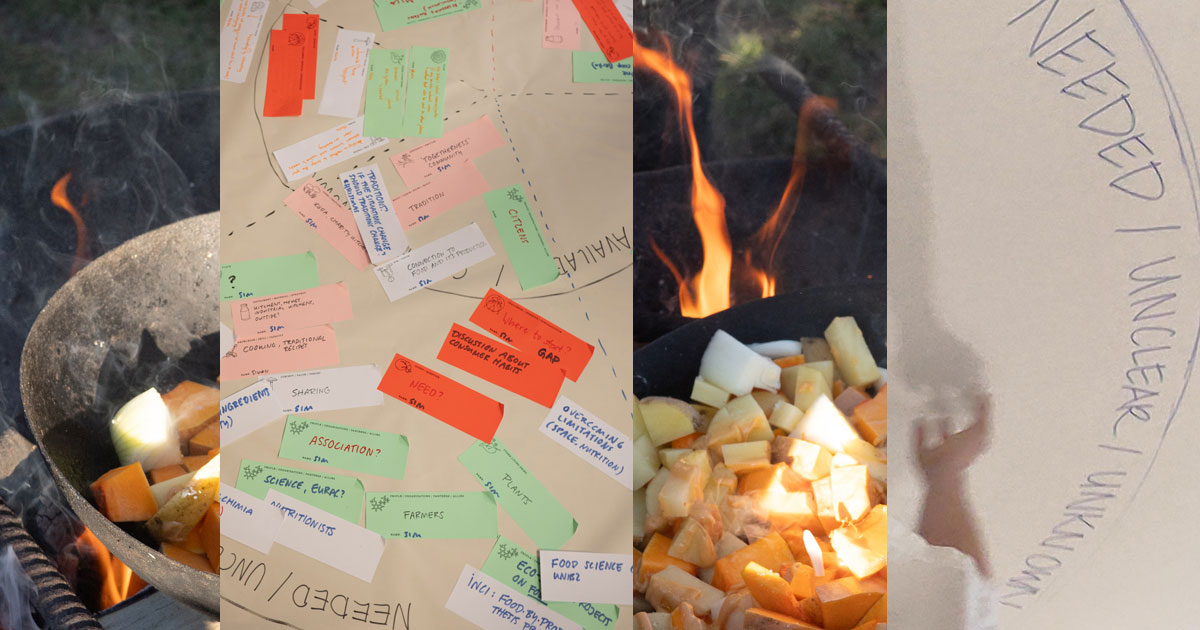In the third semester, students of the Master’s programme in Eco-Social Design develop the conceptual, theoretical and practical foundations for their final theses. You are warmly invited to engage with them in the final semester exhibition of the Faculty of Design and Art at the Free University of Bozen-Bolzano. Get insights into research and experiments. Questions and explorations. Transdisciplinary and transformative strategies and practices. Community, care and circularity. Hope.
Friday, 24 January 2025, 18:00–22:00
Saturday, 25 January 2025, 11:00–17:00
Faculty of Design and Art, C building, 4th floor corridor
Teaching team: Sonia Matos (Transformation-engaged Design Research), Rosario Talevi (Critical Spatial practice; transformative pedagogies), Kris Krois (Eco-Social Design)
Students: Matteo Antonazzo, Asena Ayse Bacaksiz , Giorgia Baccichetti, Ann Bahrs, Chiara Belpassi, Angela Bonan, Filippo Ciriani, Emma Cocco, Michela De Paoli , Iris Eberhardt, Alessia Formica, Carlotta Gambino, Jule Henschel, Lalehan Kahyaoglu, Reyhane Khodaie, Barbara Koniecka, Antonia Krebs, Tetyana Leontyuk Kuch, Anna Lienbacher, Michelle Muratori, Maria Palacios Armesto , Miriam Pardeller, Monica Ramos Marquez , Salma Remadi, Cedar Schimke , Silvia Rafanelli, Maximilian Stahl, Jonas Vogt, Simon Wallis
Projects in Progress:
Ci-Boh?!
Sharing Food, Sharing Knowledge, Sharing Culture
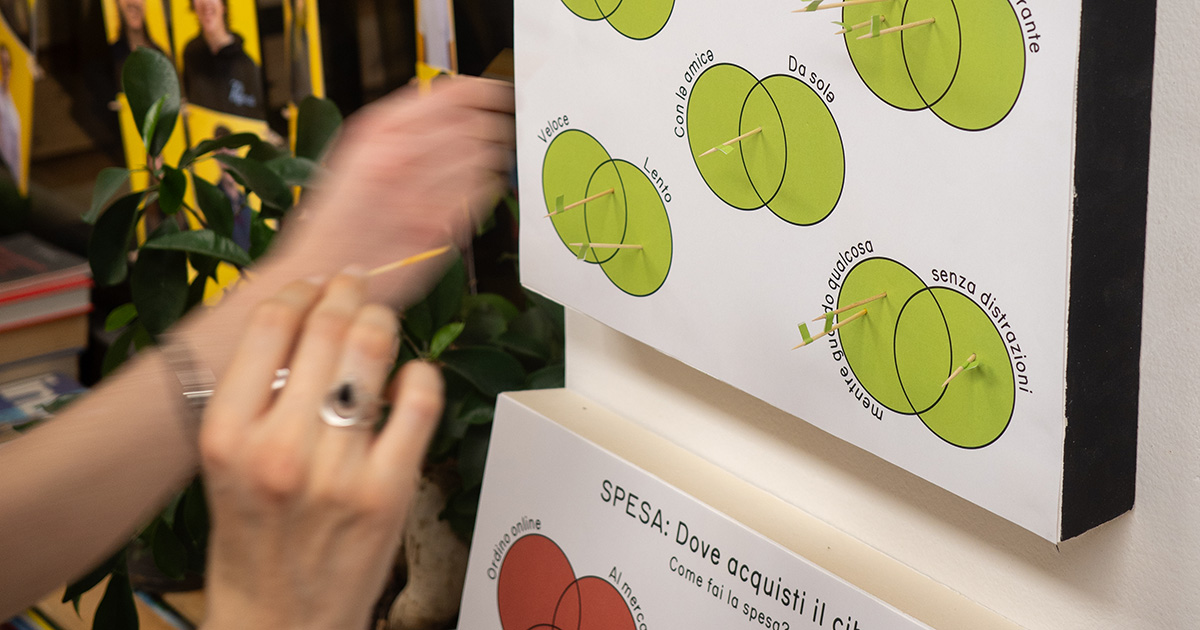
#engagement #youth #foodculture
Ci-Boh?! aims at building a community around food and invites youth in Don Bosco to explore their food routines and habits while creating a space to collectively explore a conscious food culture. Ci-Boh?! focuses on youth participation by designing interventions to let them share interests and concerns together.
Students: Asena Bacaksız, Simon Wallis
Partners: Cooltour
Da grigio a verde
Working towards a greener and more livable city
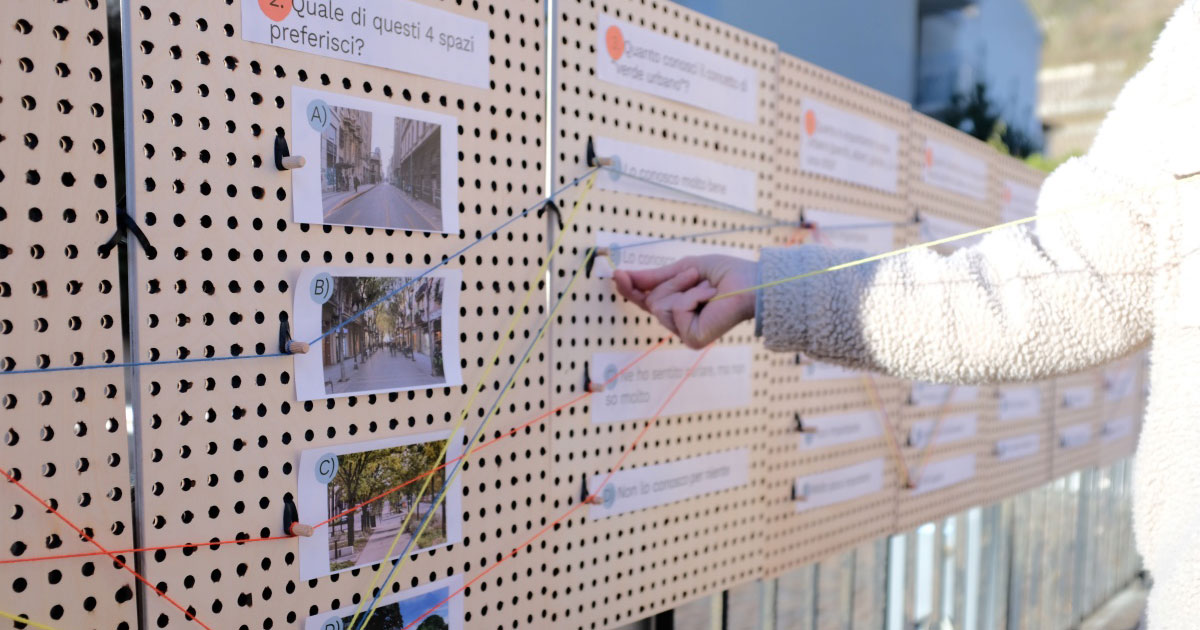
regreeningbolzano #biodiversity #communityengagement #human-nonhuman-connection
Da Grigio a Verde envisions the collaborative transformation of the Premstallerhof area in Bolzano from an asphalt-grey surface into a greener, more liveable space for all living-beings. In partnership with neighbours, Regreening Rentsch, and Climate Action South Tyrol, the project highlights the critical role of nature and biodiversity in cities amidst extreme climate events. How can neighbourhoods learn about climate resilience? How can groups of neighbours become involved?”
Students: Michela de Paoli, Barbara Koniecka, Tania Leontyuk
Instagram: instagram.com/da_grigio_a_verde
Website: dagrigioaverde.framer.website
Partners: Regreening Rentsch, Climate Action South Tyrol
Contact: dagrigioaverde@gmail.com
Fresh Paths
Redefining Hospitality in the Dolomites: A Vision for Tomorrow
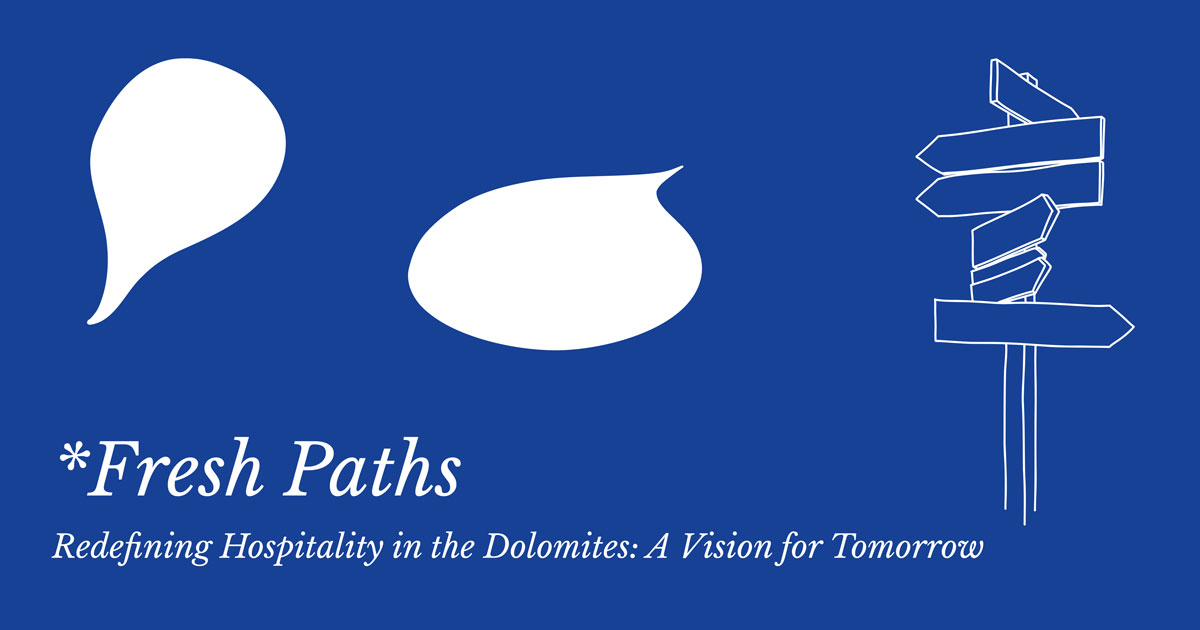
#dolomites #culturalpreservation #alternativetourismmodels #community #bottomuptourismstrategies
Fresh Paths explores a critical approach to tourism development in the Dolomites, balancing the diverse interests of hoteliers, locals, tourists, and decision-makers while prioritising social and ecological balance. Is it possible to rethink a tourism industry that respects planetary boundaries? What kinds of collaborations are needed to create effective, solidarity-driven, bottom-up solutions that benefit all?
Students: Miriam Pardeller
Terravaso
Exploring Soil Life beneath our Feet
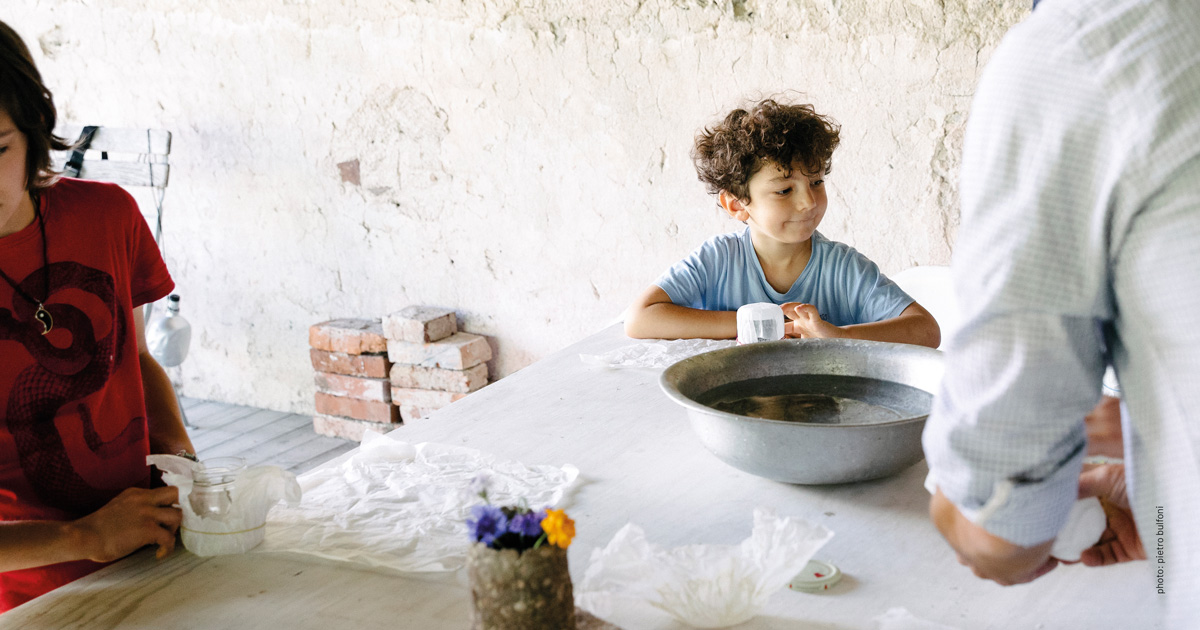
#fertile soil #educational #environmentallearning #sensorylearning #interrelatedness
Terravaso invites children to explore the importance of fertile soil through sensory and interactive play. By creating bio-based educational materials, the project offers a hands-on and tactile approach to understanding soil health and bridging disciplines to make this complex topic accessible and engaging.
Student: Anna Lienbacher
Partners: Montessori.coop Kohlern (IT), Volksschule Winklarn (AT)
Photo: Pietro Bulfoni
Material Matters!
Establishing Reused Material Flows in Universities
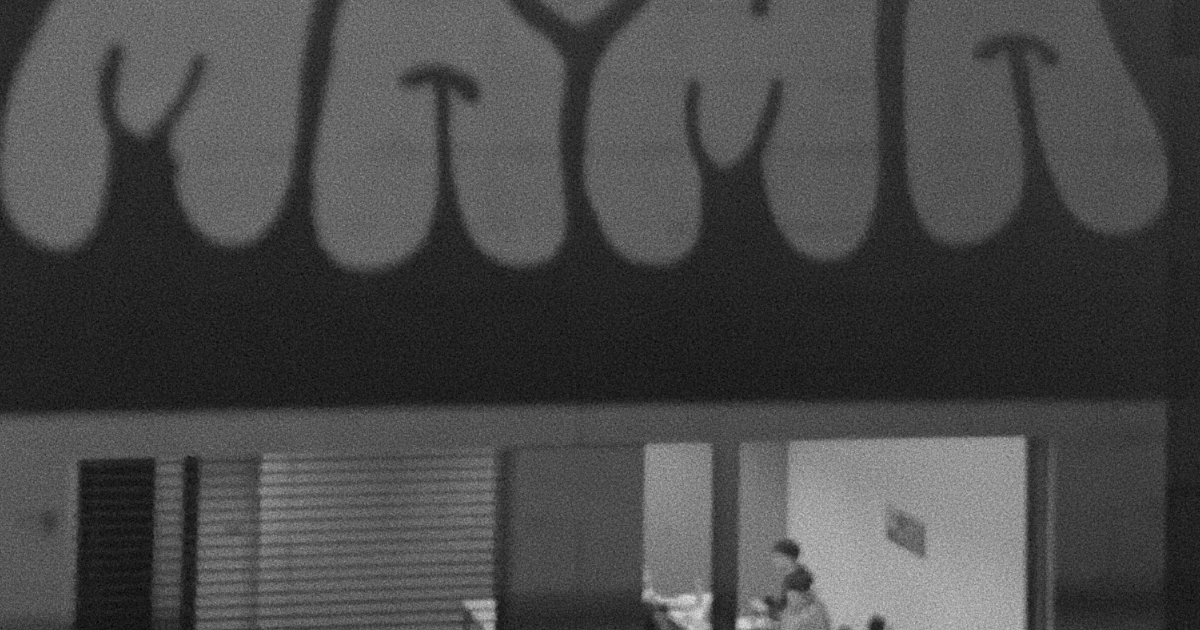
#maximizingmateriallife #readymadedesign #communitybuilding
Ever thrown away something still usable? Material Matters! (or Mama) tackled this by collecting materials from students and redistributing them to others who needed them. The goal? To reduce the environmental impact of prototyping at university while proving that reusing materials can save money and make crafting more accessible. Can we rethink waste and turn it into opportunity? Mama shows that with the right timing, anything can find a second life.
Links: MaMa, Showcase, IG: mama.unibz, LI: Material Matters bz, Mastodon: mamaunibz
Student: Antonazzo Matteo
Partner: Material Matters! team
Contact: materialmattersbz@gmail.com
For the Living and the Dead
graveyards as a spaces for community and biodiversity
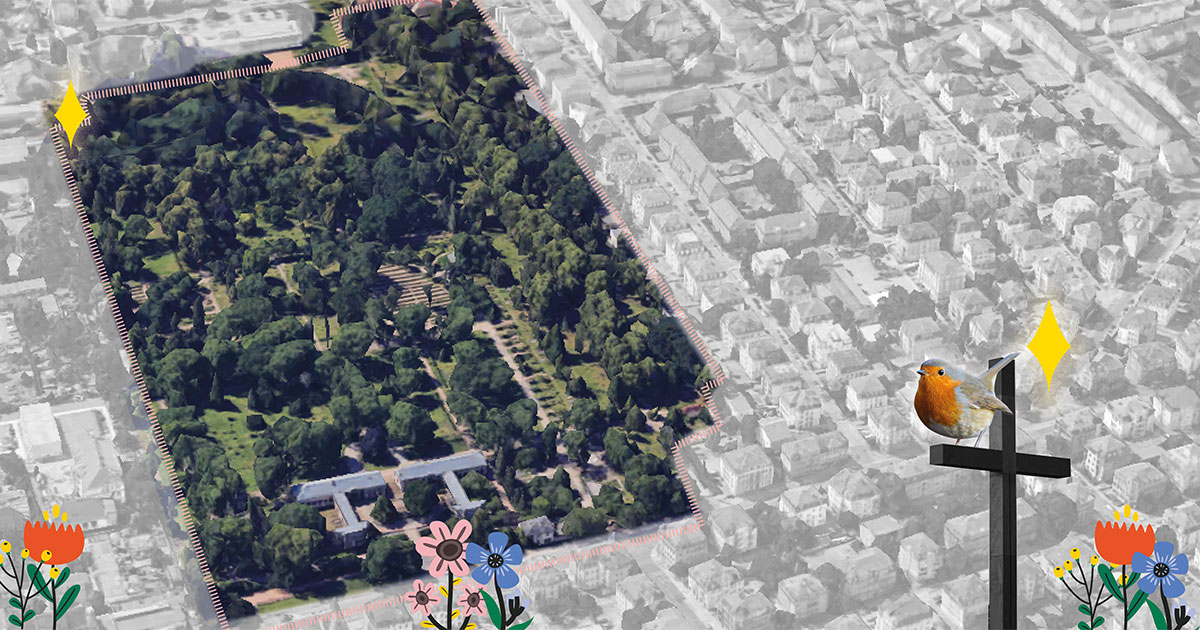
#biodiversity #urbancementeries #community
For the Living and the Dead reimagines urban cemeteries as hybrid spaces that support ecological biodiversity, offer tranquility, and deepen our connection to nature. Unlike parks, cemeteries intertwine natural environments with the cultural and spiritual layers of religion and reflection, creating sanctuaries for both people and wildlife. Through interactive exhibitions and participatory activities, the project invites visitors to experience the cemetery as a space full of life.
Student: Antonia Krebs
Partners: Lara Schink / Neuer Annenfriedhof Dresden
Contact: IG: @friedhofderzukunft / @antonia.portfolio
NeuroSpicy
Celebrating Diverse Ways of Thinking for Social Change
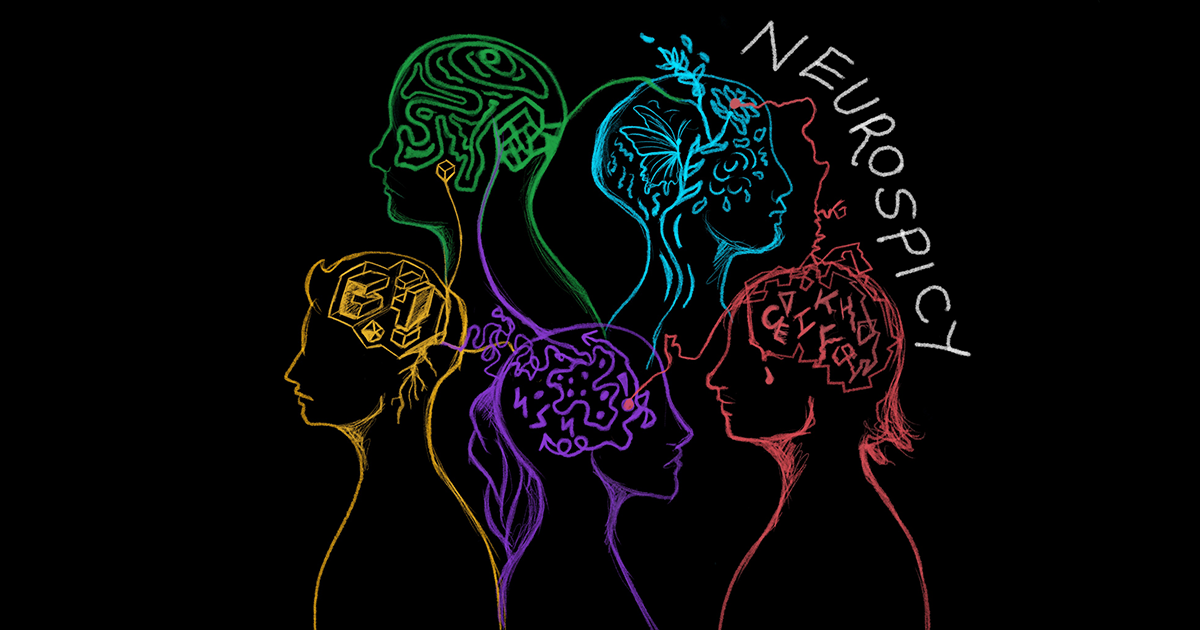
#neurodiversity #liberating #celebration #flippingthenarrative #unmasking #queering
Why do we label unconventional ways of thinking as ‘disabled,’ and how can we challenge narrow ideas of ‘normal’? By celebrating neurodiverse perspectives—such as the creativity of ADHD and the anti-hierarchical strengths of autism—this project amplifies neurodivergent voices and promotes diverse minds, identities, and alternative ways of thinking, being, and playing, while advancing a different understanding of productivity, time, and doing.
Student: Lalehan Kahyaoglu
Voci del bosco
Unfolding the potential of urban forests for human-nature relations
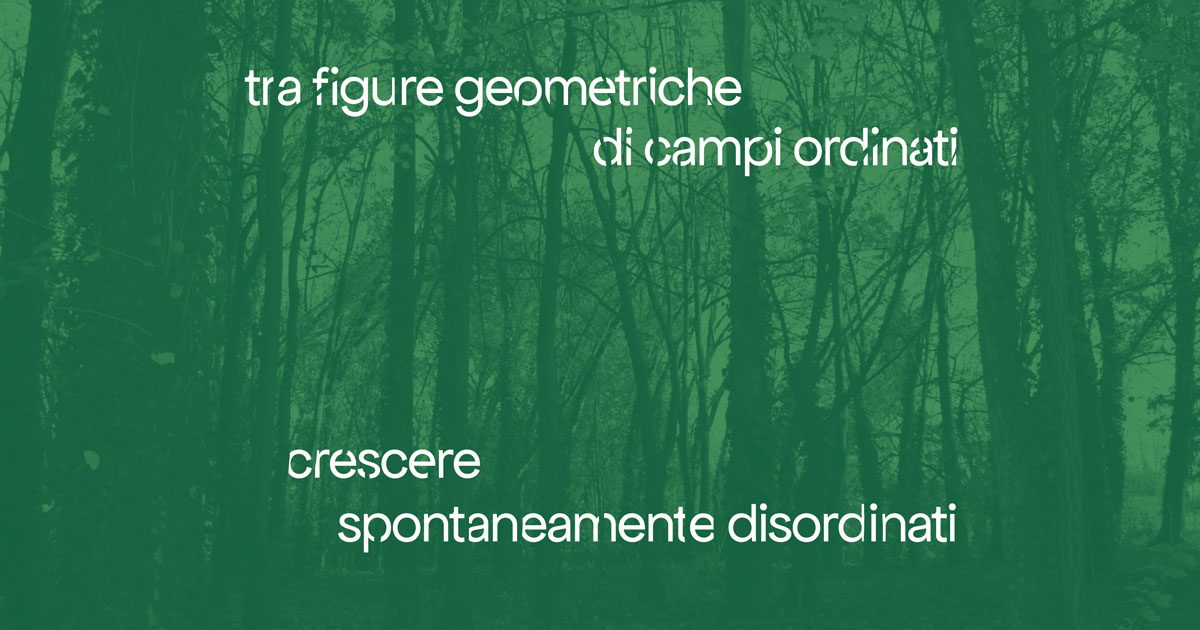
#urbanforests #territory #collectivenarratives #creativecartography
What is the social and environmental role of spontaneous urban forests in human-disturbed territories? How do urban dwellers perceive these natural spaces, and how can they be engaged to shape their future? Storie di un Bosco explores these questions through activities such as collective walks and critical mapping in the flatlands of Modena, Italy, aiming to create new collective narratives for urban forests.
Student: Emma Cocco
The familiar foreign
Belonging in an ever-moving world.
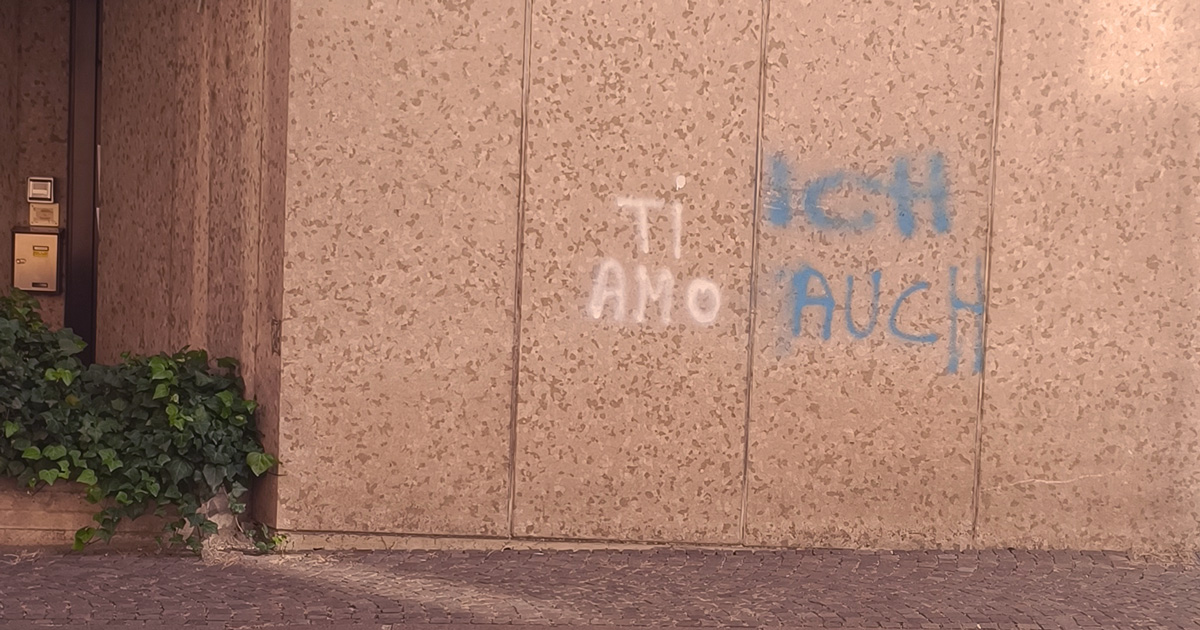
#Belonging #Language #Moving
What does belonging mean for those in constant movement? Rooted in my experience as an Iranian in Italy, this project uses language as a lens to connect with places and people. It combines personal insights and playful interventions to explore how objects and meanings create familiarity in foreignness.
Student: Reyhane Khodaie
Fractals of Liberation
Decolonising the school curriculum
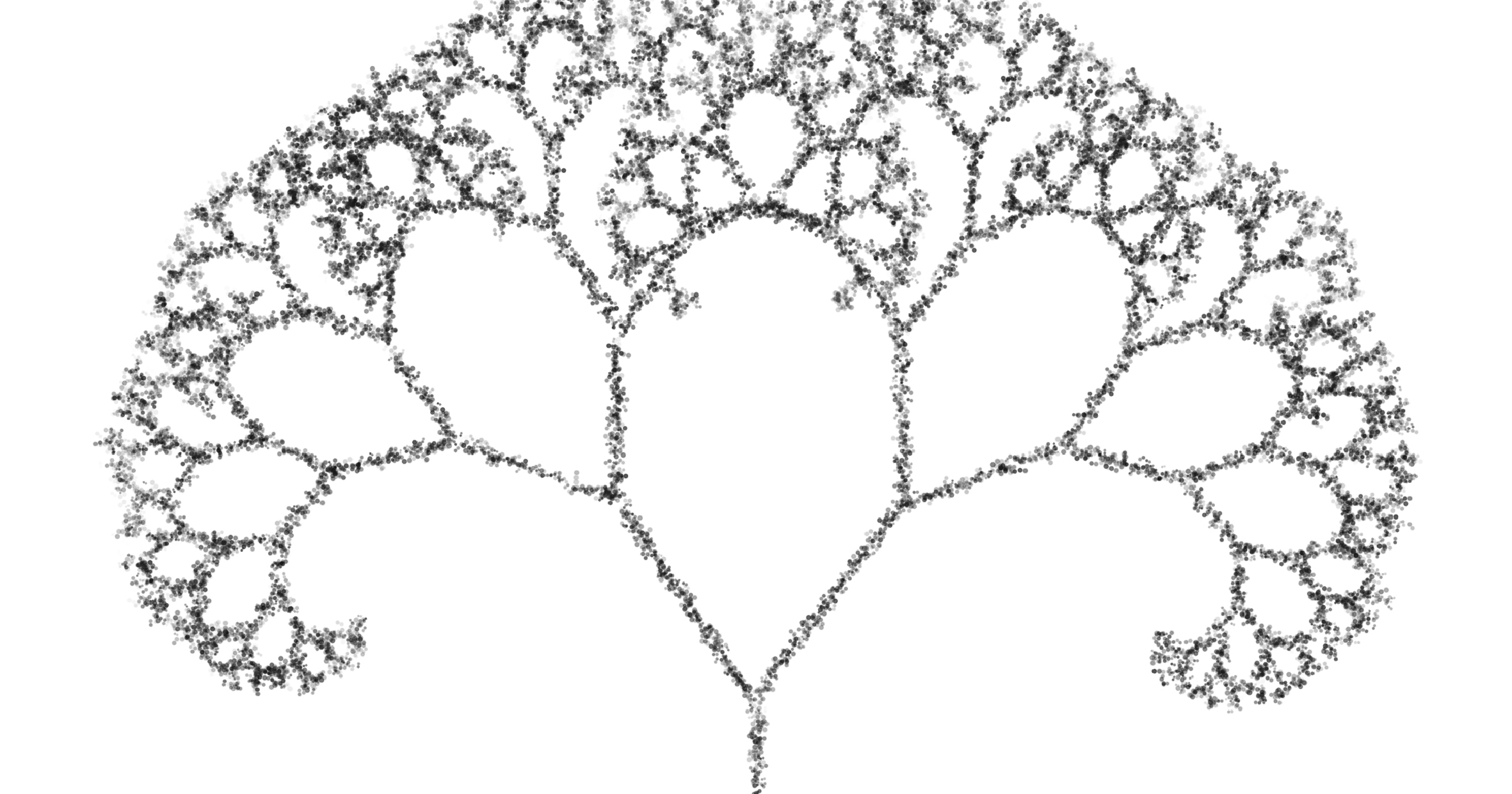
#awareness #liberation #decolonisation
Fractals of Liberation explores alternatives to decolonizing the school curriculum in South Tyrol. Born from my collaboration with OEW on the Kolonialwarenladen project, the exhibition travels between schools, showcasing 15 colonial products to raise awareness of their colonial histories. This project serves as a research tool to assess its impact on students’ understanding of colonialism and the global extraction behind the products they consume.
Students: Salma Remadi
Partners: OEW – Organisation für Eine solidarische Welt – L’Organizzazione per Un mondo solidale
Making a Living
Enacting Commons through Convivial Technologies
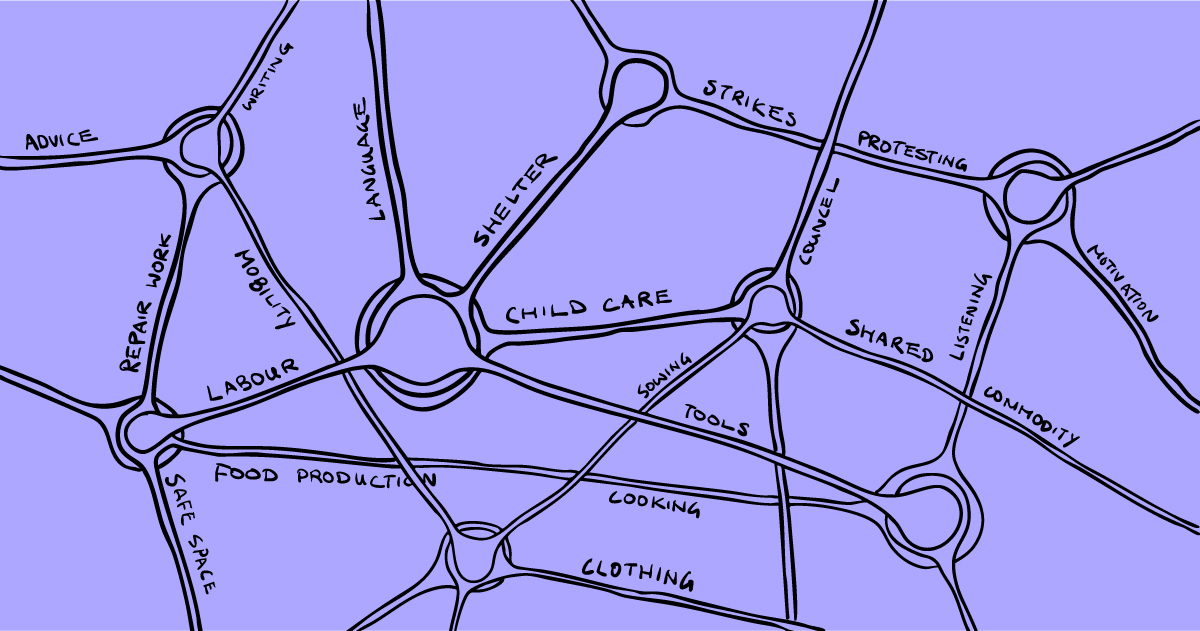
#commons #conviviality #peer2peer
To live with the capitalist logics of production and consumption is to live at the expense of each other and the environment. We exploit others and the non-human world, and are exploited in return. This research explores how open convivial technology could connect individuals to collectively enact the commons, enabling them to produce, share, and care for what is needed, useful, and meaningful—for both people and the planet.
Student: Jonas Vogt, IG @jonasvogtdotcom
Open Design for Resilience
Making in Critical Times
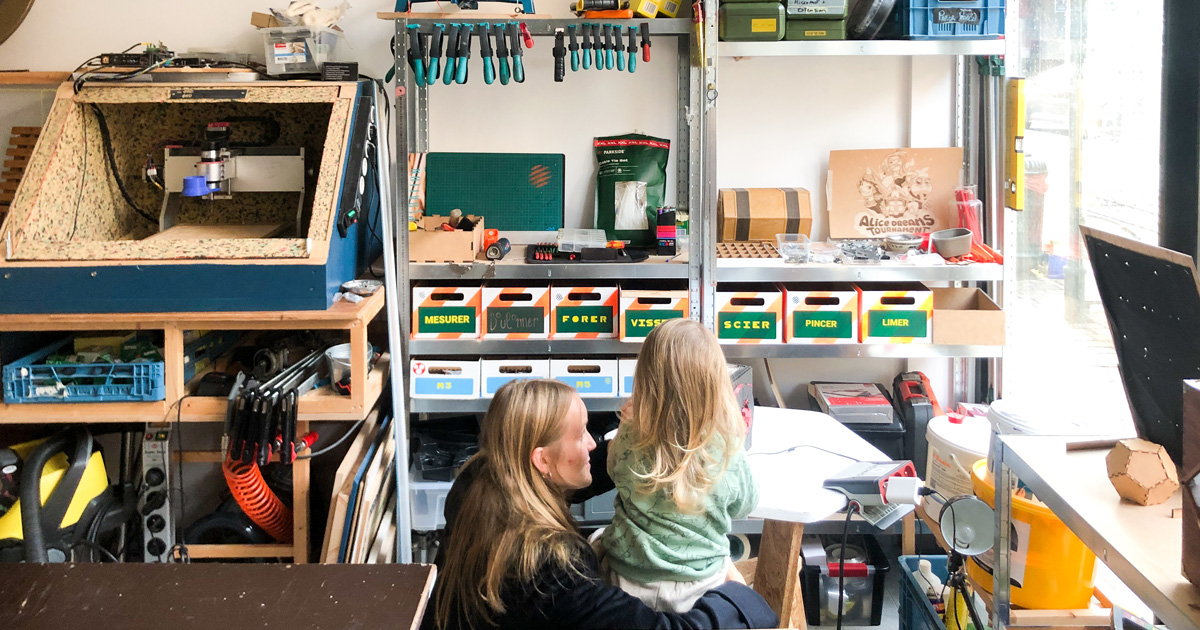
#makermovement #opensourcehardware #lowtech #crises #speculative
Can anyone be a designer? What does it take to become one? This project explores the response of the global maker movement in developing community resilience during uncertain futures and the polycrisis. It questions the risks and limitations of open technologies, such as 3D printing, in meeting needs that are not addressed by our market-driven economy.
Links: Open-Design-for-Resilience-Newsletter
Student: Maximilian Stahl, IG: maximilian.carl.stahl
Hand in Hand
Allgäu’s Eco-Social Network
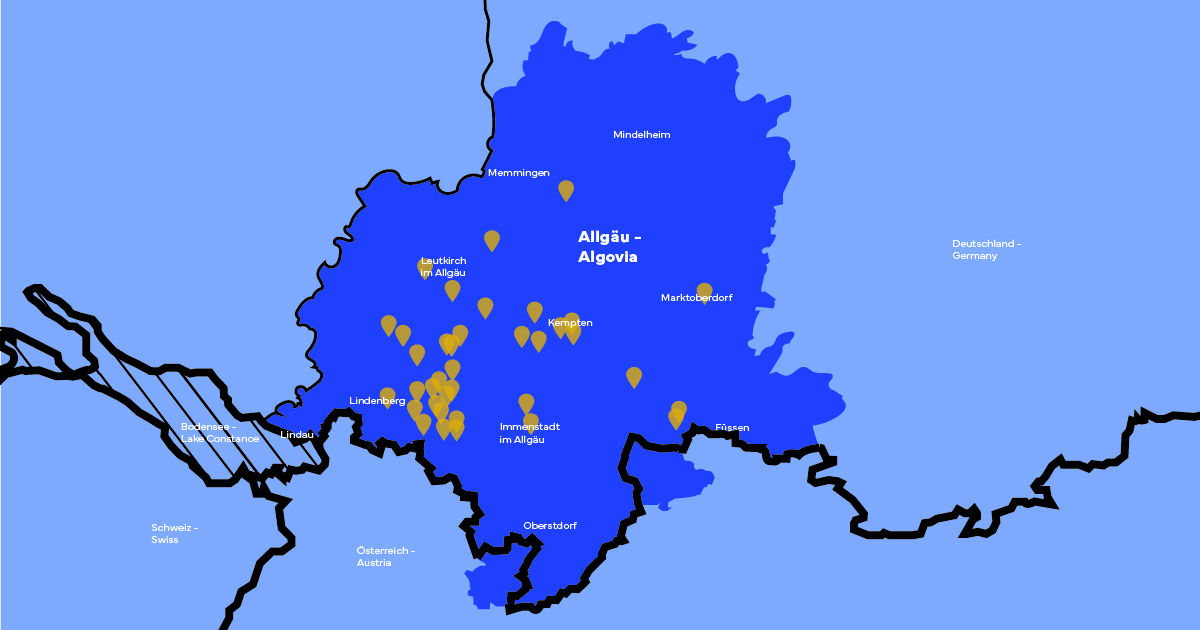
#rural #participation #co-creation #networking #goodfuture
What role can rural areas play in eco-social transformation? How can we build a community that cares for sustainability? This project highlights the potential of social and ecological transition in Allgäu, a rural region in southern Germany. The aim is to strengthen the regional communities through collaborative, transformative projects. With a participatory approach, residents actively engage in exploring and understanding the opportunities within their area, encouraging knowledge-sharing and collective creativity.
Student: Iris Eberhardt
Supporter: Allgäu Fairnetzt
Punto d’Incontro
Transforming Disability Perception through Learning
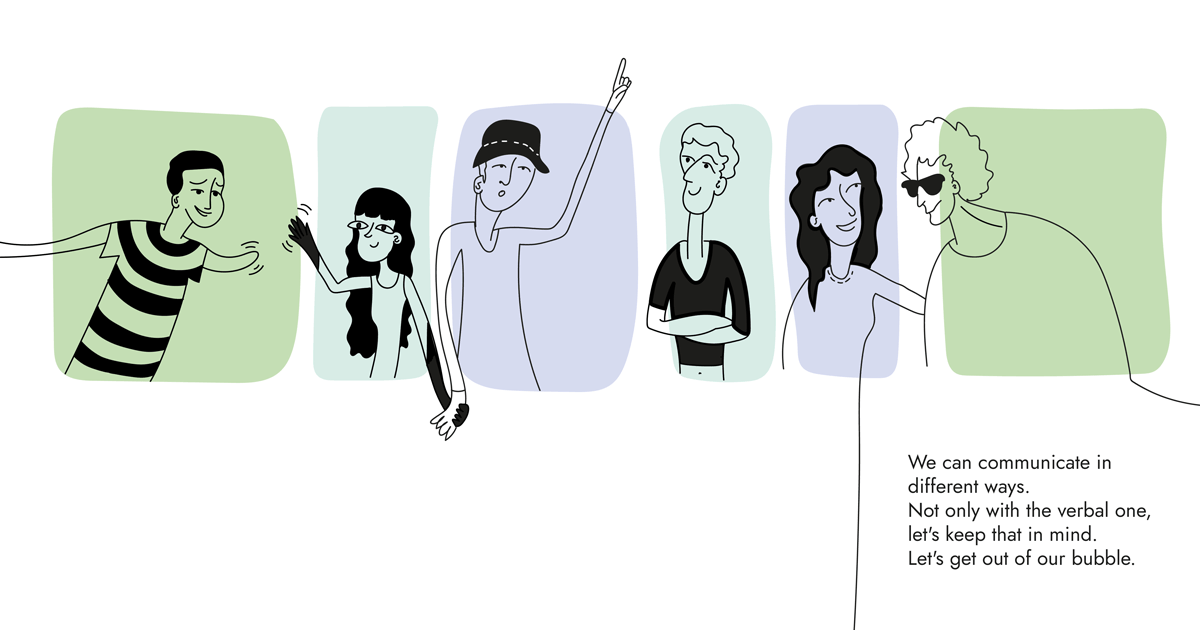
#disability #communication #education #smallkids
How can we build learning environments that encourage understanding between disabled and non-disabled children? By bringing together children with disabilities and those without, Punto d’Incontro seeks to promote self-expression, mutual respect, empathy and inclusivity through the power of communication and representation.
Student: Giorgia Baccichetti
Supporter: AIAS Bolzano
Resilient Waters
Building Lasting Community Networks for Flood Response
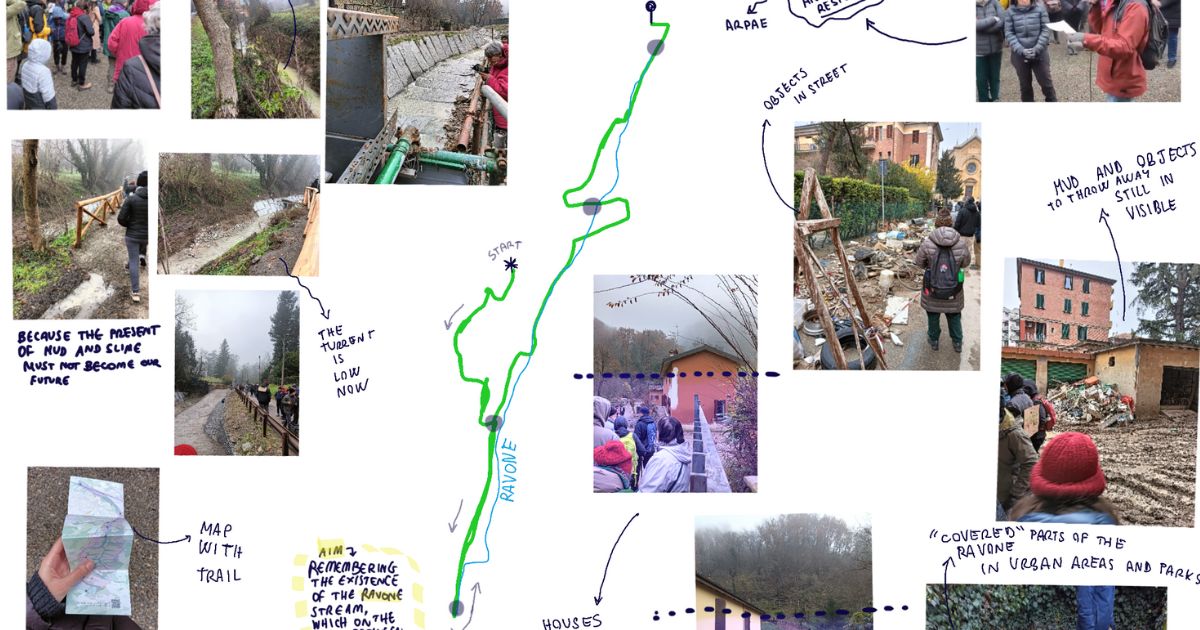
#collectiveresilience #floods #solidaritydisaster #climateadaptation
In the aftermath of floods, communities often come together in extraordinary ways, showing the strength of collective action. This project explores how we can harness the solidarity that emerges after a crisis and sustain it over time. It focuses on preparedness, reaction, and long-term community cohesion.
Students: Michelle Muratori
Re-learning Care
Counter-acting patriarchal notions of care through new pedagogies
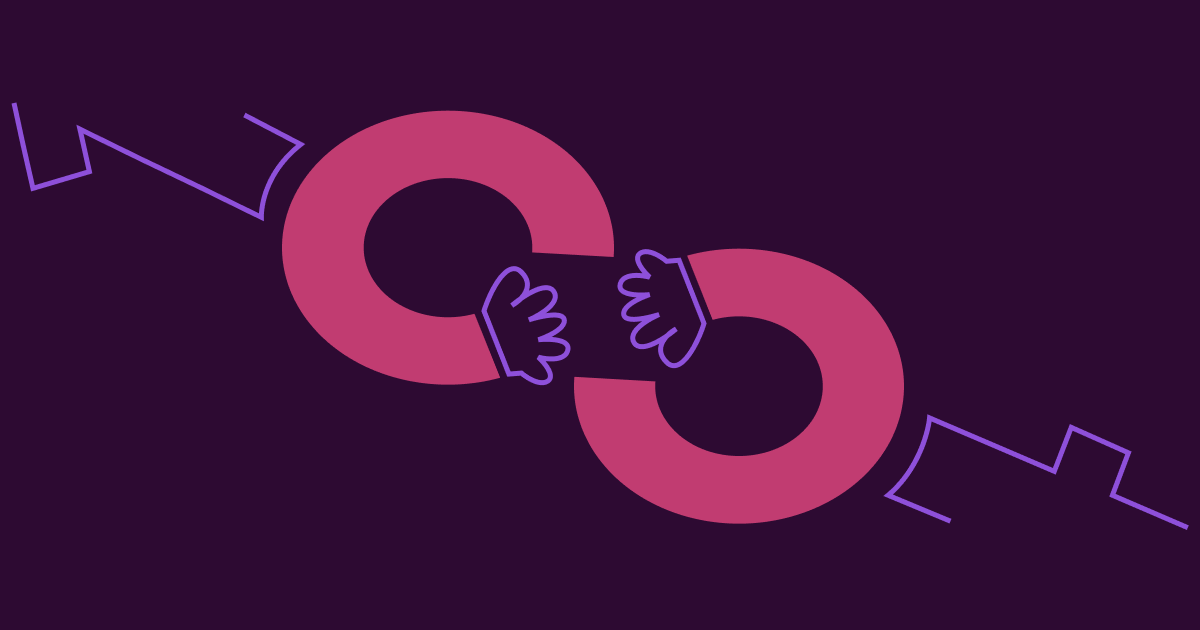
#genderroles #careparadigms #collectivecare
In a society where gender roles often shape perceptions of care, it’s essential to examine how children learn about care expectations in their daily lives. This project explores alternative pedagogical approaches to challenge outdated cultural norms to promote more equal and community-oriented models of giving and receiving care.
Student: Mónica Ramos Márquez
Reconnection and Rebirth
Towards a cycling route between two villages in the Tuscan countryside
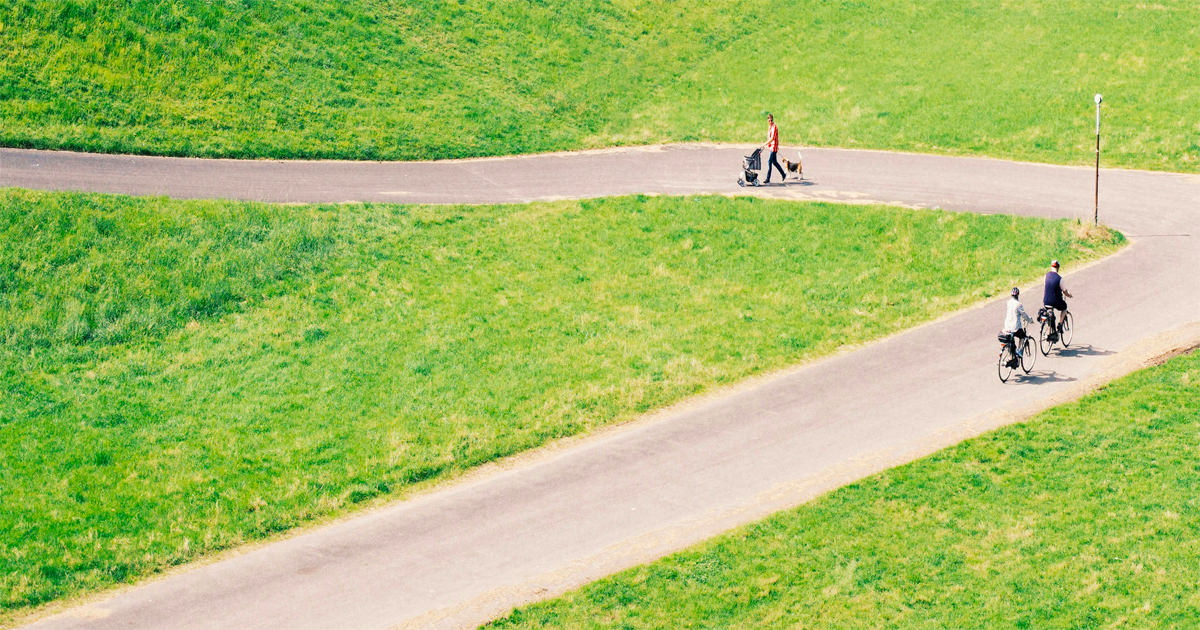
#mobilitytransition #localeconomies #rural
The project empowers locals, tourists, and rural stakeholders by promoting slow, sustainable mobility, reducing car dependency, and encouraging eco-tourism. It supports local economies and environmental preservation, contributing to sustainable mobility transformation through partnerships with businesses, municipalities, and NGOs.
Student: Silvia Rafanelli
Partners: FIAB – Firenze Ciclabile
The Glasswing effect
Transformative Communication Strategies for Sex Work and Sexual Exploitation
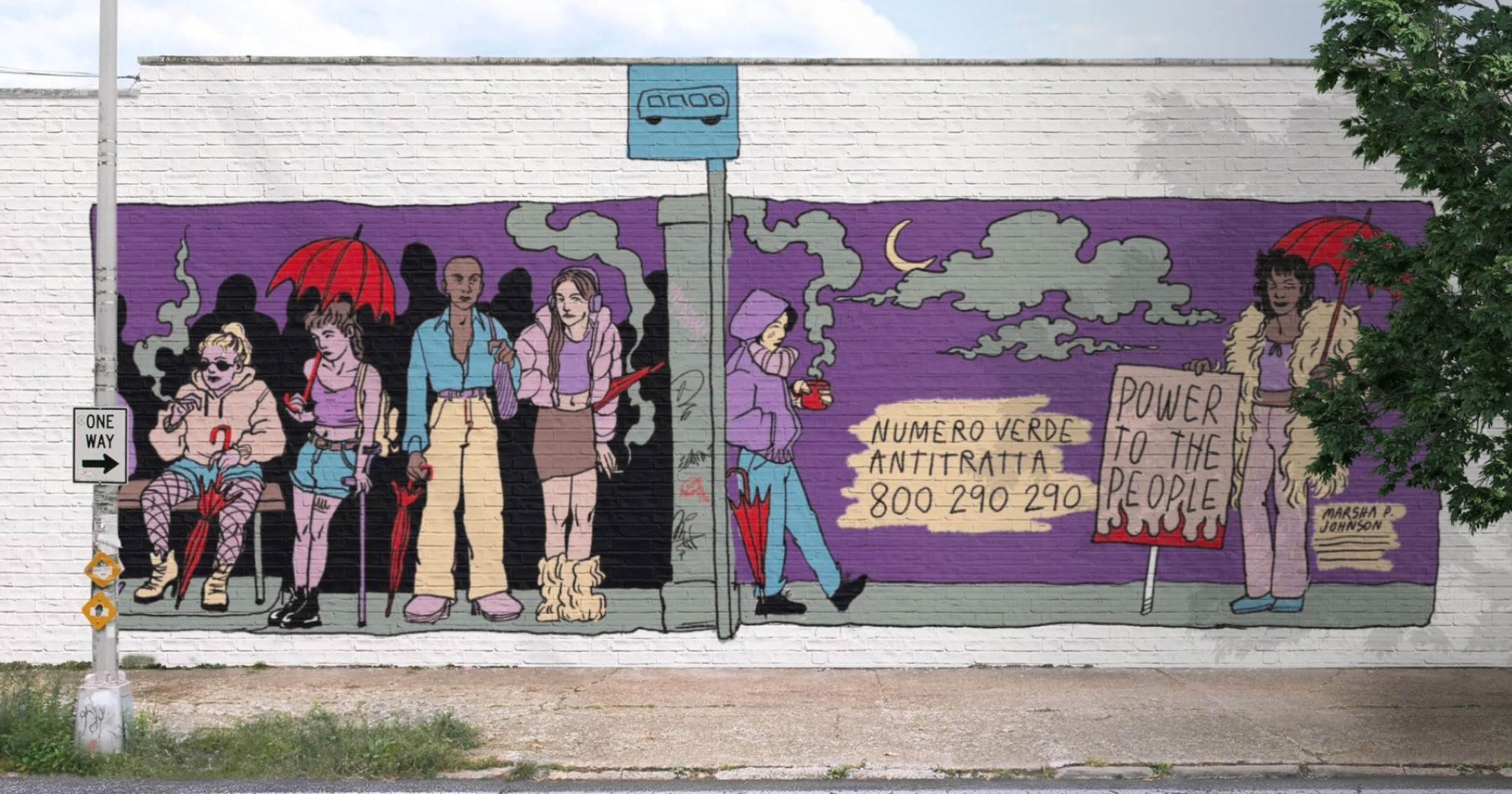
#transformativelanguage #sexwork #socialjustice #visualculture #intersectionality
Inspired by the resilient wings of the Glasswing butterfly, this project challenges harmful stereotypes about sex work and human trafficking. It emphasises self-representation, ensuring those involved have spaces to be heard and valued. Through collaboration with advocacy organisations and historically marginalised communities, it aims to dismantle oppressive narratives and promote transformative communication.
Student: Alessia Formica
Beat the Tide
Spaces of Other Logics in Venice
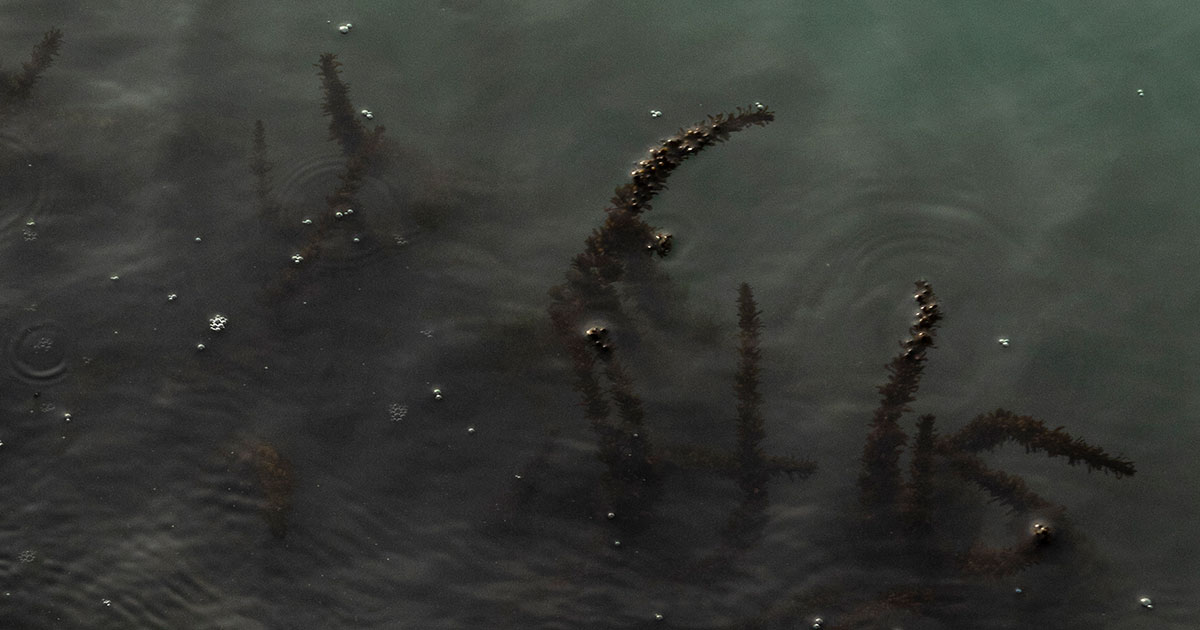
#activism #inhabit #converge #rooting
Beat the Tide explores spaces in Venice shaped by practices of commoning and care and the communities that sustain them. Often less visible and difficult to find in a city like Venice, these spaces represent long-standing efforts to resist systemic pressures from capital-driven city development. By creating a game-based guide to these spaces and initiatives, the project—while exposing Venice’s main challenges—offers resources for those interested in building connections, contributing with shared practices, and envisioning counter possibilities.
Students: Angela Bonan, Filippo Maria Ciriani
Partners: Comitato No Grandi Navi, ASC, Laboratorio Occupato Morion, Zenobia, LiSC, R3B, Sale Docks, OCIO, We are here Venice
ClassRooms
Overcoming Social Barriers in Education through New Narratives
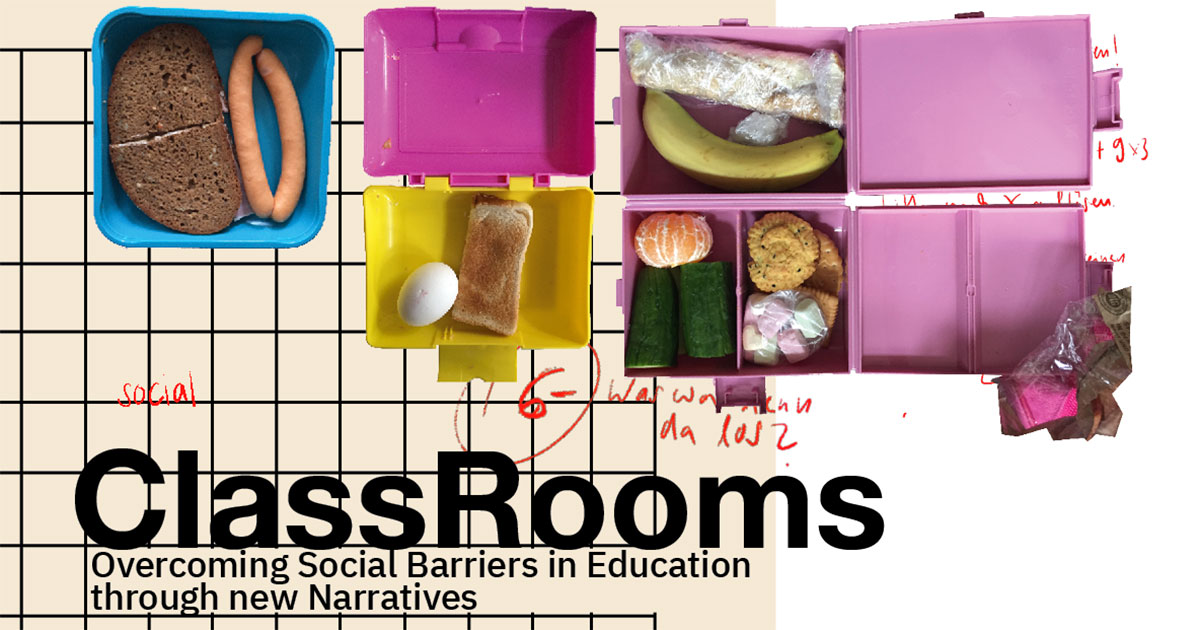
#Classism #Storytelling #Comic #SocialClass
Classism remains a pervasive issue in educational systems, where students from privileged social backgrounds often have better opportunities than their peers. This systemic barrier makes it difficult for affected students to express their experiences and for educators to recognize and address these dynamics. To tackle this, we are designing a workshop series that uses storytelling formats like comics and privilege-based games to explore and address classism in schools. These workshops will be conducted collaboratively with Salma, who focuses on colonialism and its intersections with inequality.
Student: Ann Bahrs
Partner: OEW – Organisation für Eine solidarische Welt – L’Organizzazione per Un mondo solidale, Arbeiterkind.de, Sentitreff
A Common Thread
Turning swapping into the new default
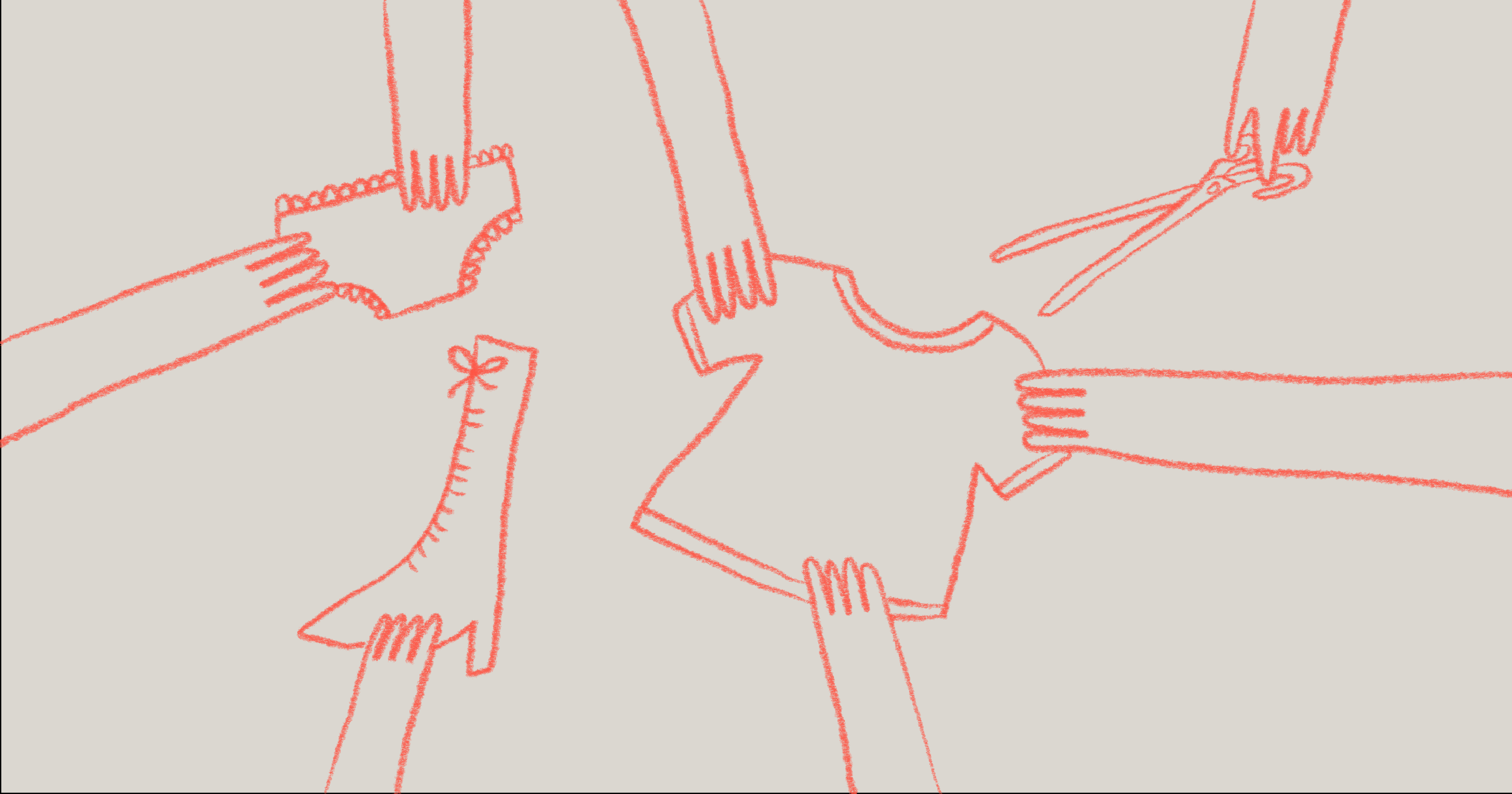
#clothes #alternativeeconomies #swap
A Common Thread aims to make swapping the new standard. Through collaborations with local initiatives in Turin, the project encourages people to rethink their consumption habits and build connections within their communities. By making swapping an accessible and widespread practice, A Common Thread seeks to inspire a shift in how we value and use clothing, promoting a sharing economy, as well as repair and reuse practices.
Links: instagram.com/swappartyto
Student: Carlotta Gambino
Partners: swappartyto
Event: Swap Party on Saturday 25th from 14:30 to 17
The Reflected City
The Body in Urban Space
––– images missing –––
How do our bodies truly connect to the urban spaces we navigate daily? In a world of constant movement—whether for work, study, or love—this project invites individuals and groups to explore their relationship with the city through movement. By walking, observing, and engaging with our surroundings, we reclaim autonomy over how we experience urban environments. This practice transforms alienating spaces into sites of connection, empowerment, encouraging a deeper, shared sense of purpose within the city.
Student: chiara belpassi
Photo: Architectural Review, “Stepping out: The flâneuse claims the city for herself.”
Nature speaks through Benidorm
Beyond mass tourism

#costablanca #overtourism #naturalheritage #sustainabilityplans #community
How can a city so deeply shaped by mass tourism reclaim its identity and chart a sustainable future? Once a small fishing village on Spain’s Costa Blanca, Benidorm underwent a dramatic transformation in the mid-20th century, becoming a global emblem of mass tourism. As Benidorm prepares to take on the role of European Capital of Culture 2025, this project seeks to uncover its pre-tourism history, engage with the lived realities of locals and visitors and to spark a collective reimagining of Benidorm’s future.
Students: María Palacios Armesto
Invisible Structures
Co-Building as a Process for Cultural Repair
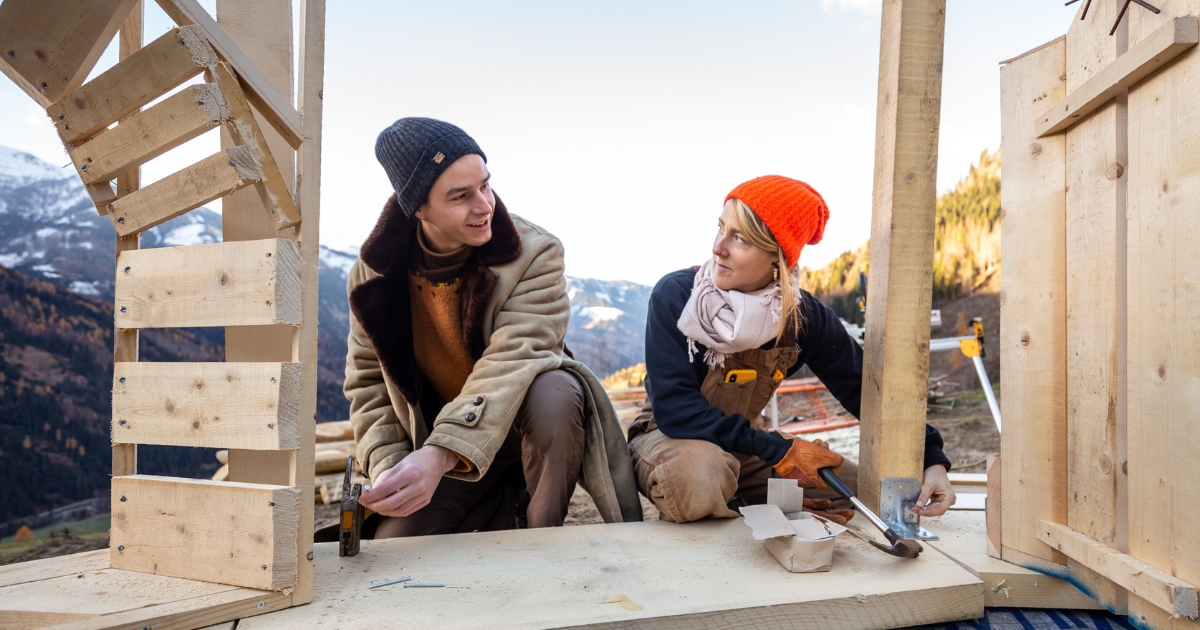
#CommunityResilience #HolisticCarpentry #CulturalPatterns #Collaborative Building
Construction is a high-stakes process where stress amplifies the invisible practices of culture. In our culture, efficiency and authority are often prioritised over collaboration and care, with material consequences to the building. This project uses co-building scenarios as a liminal space to reveal and transform how we behave under pressure, develop practical skills, and play with alternatives to existing norms. Invisible Structures examines how re-integrating immaterial awareness into material skills training can deepen resilience and interdependence.
Website: invisiblestructur.es
Student: Cedar Schimke
Partners: Madeline Island Community
